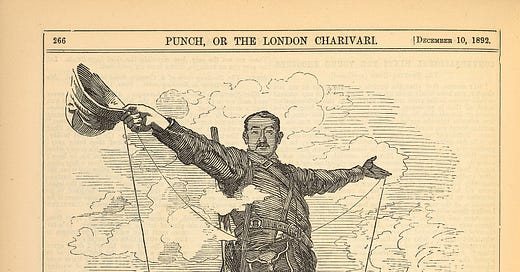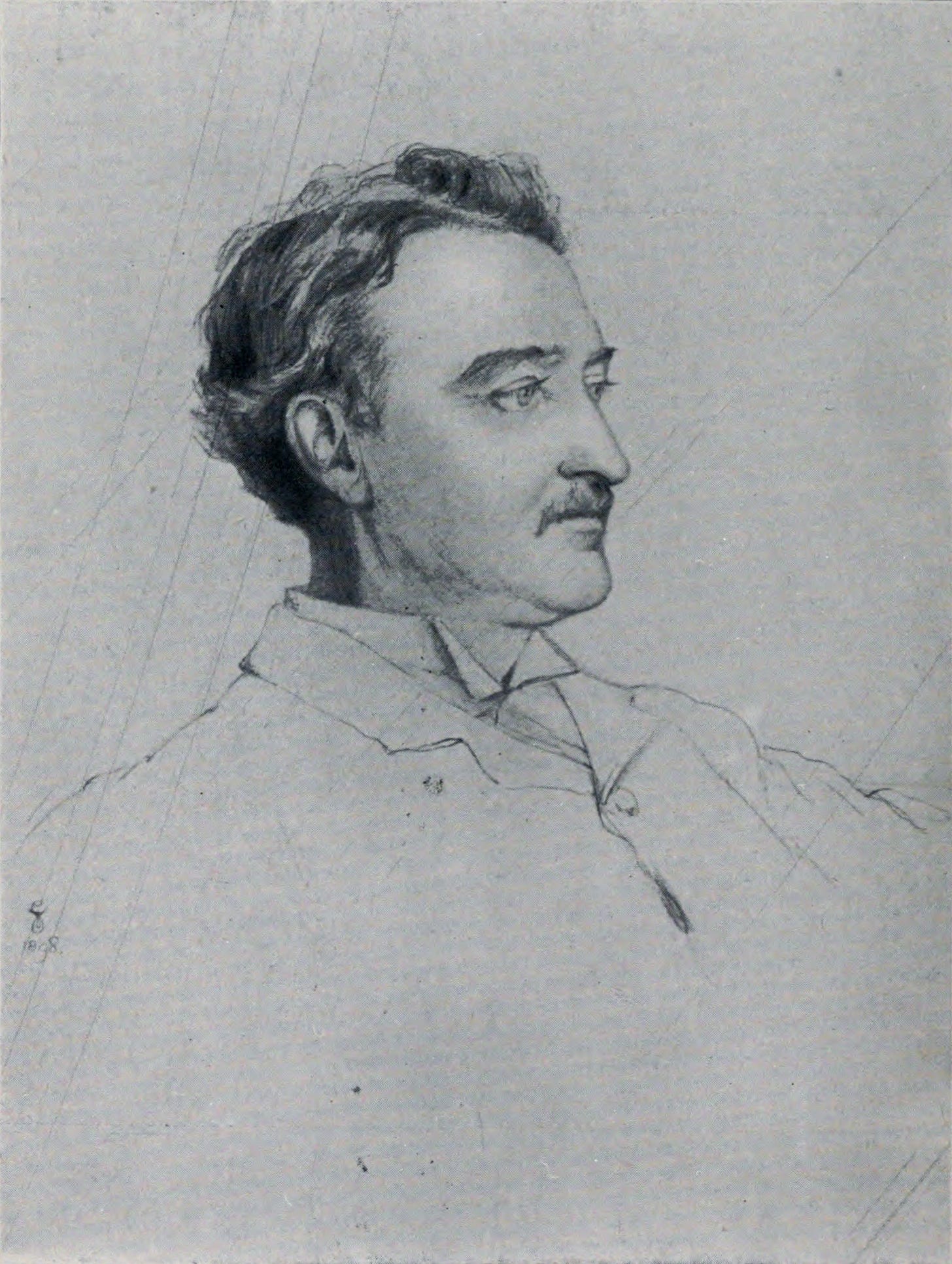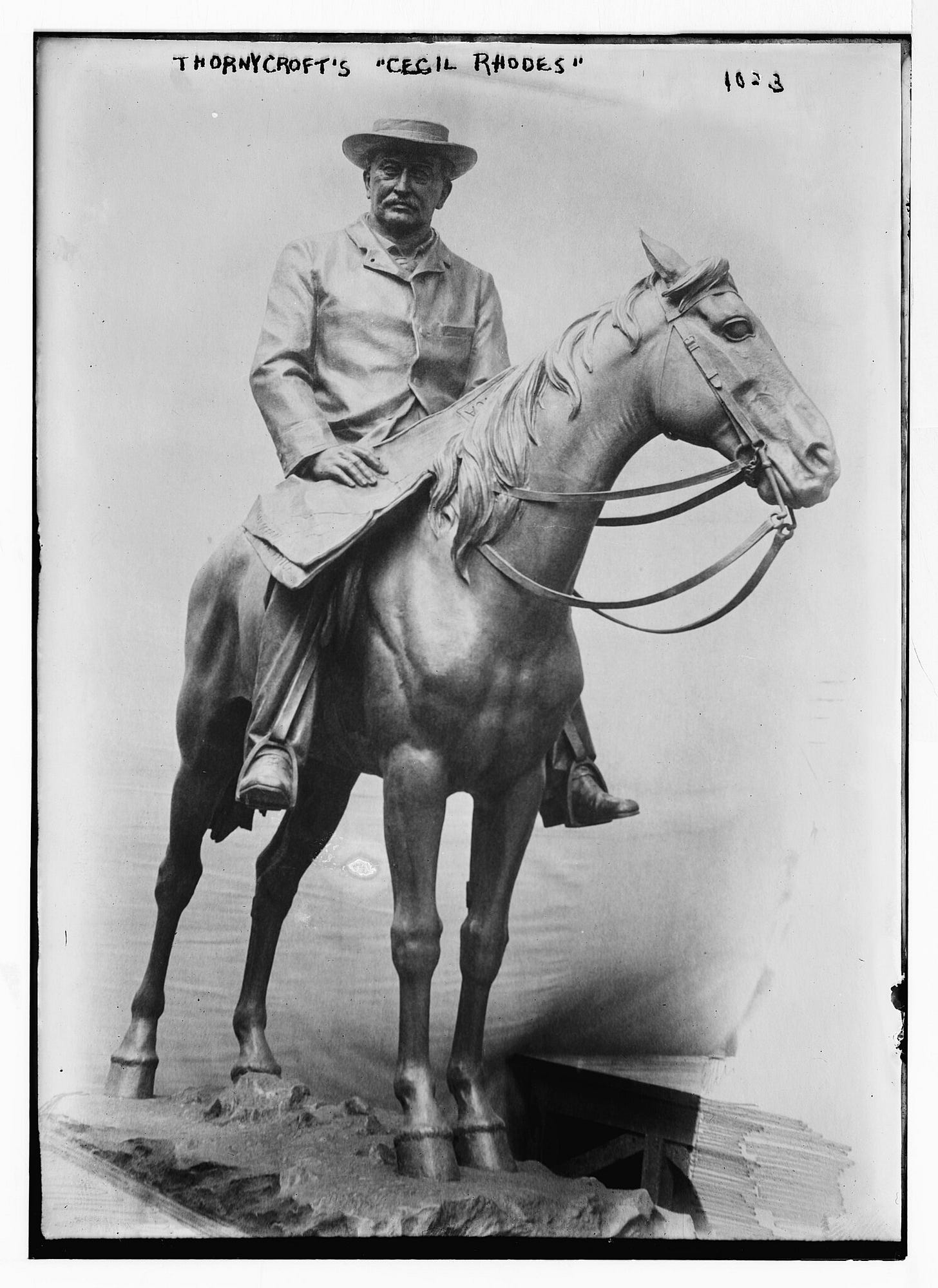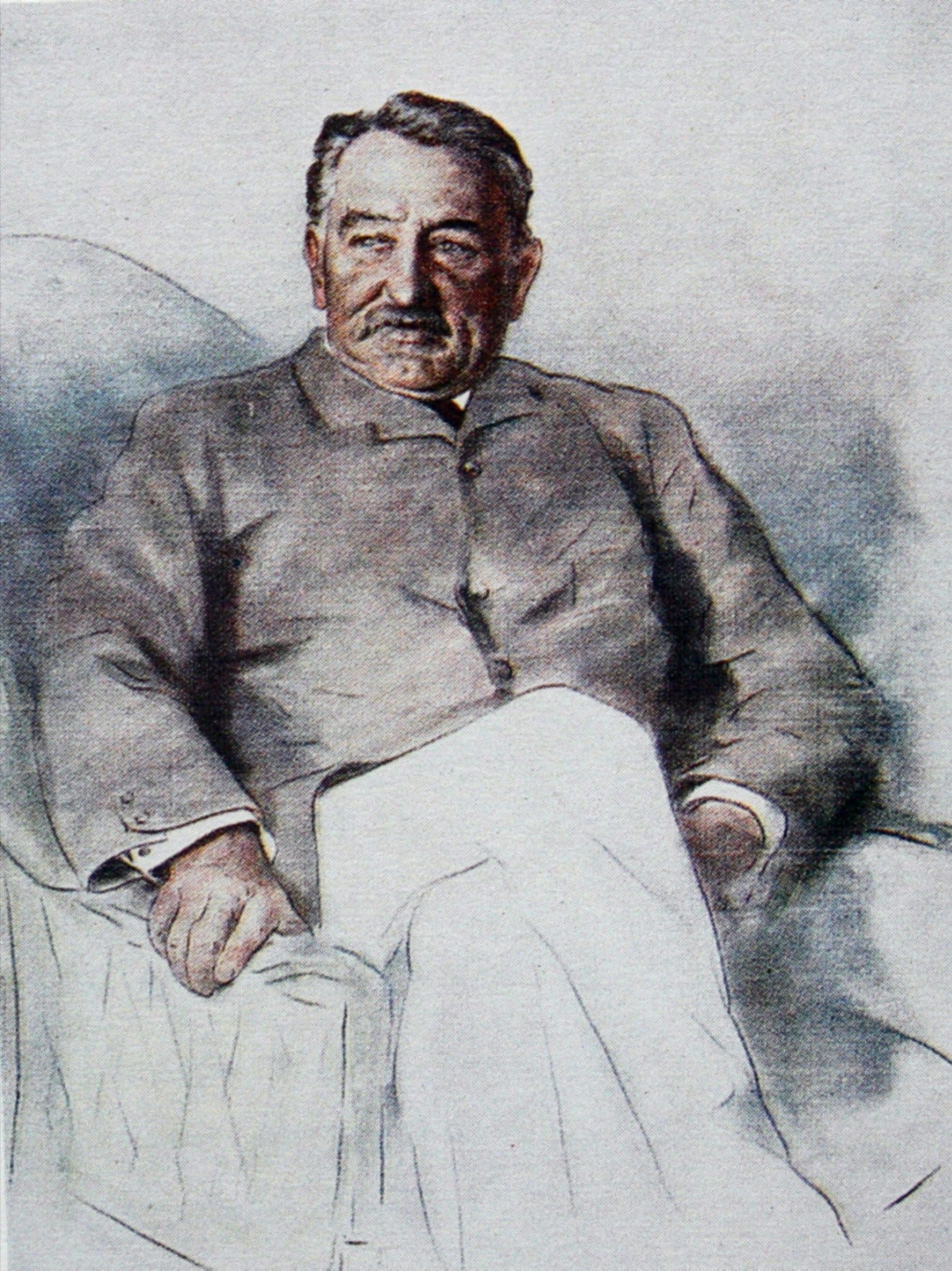Victim Culture And The Rhodes Scholarship
The Rhodes Scholarship is failing to cultivate the leaders our times so desperately need
The following speech was delivered June 30 at Oriel College, Oxford University, at a gathering marking the 120th anniversary of the Rhodes Scholarship.
As we gather in Oxford to renew old friendships and mark the 120th anniversary of the Rhodes Scholarship it is impossible not to notice the changes that now dominate the scholarship and the activities in which we are taking part. In the first place, we are not here alone. We’re celebrating, in addition to the 120th anniversary of the Rhodes Scholarship, the twentieth anniversary of the Mandela Rhodes Scholarship and the fifth anniversary of the Rise program, created by Eric Schmitt, the billionaire former CEO of Google.
Plate from p. 50 of “The Last Will and Testament of Cecil John Rhodes,” 1902. Wikimedia.
The Mandela Rhodes Foundation was created with the help of John Rowett, the former Warden of Rhodes House who, unsurprisingly, became the new Foundation’s director. Rowett successfully transferred $16.6 million to the Mandela Rhodes Foundation to support education in South Africa, although there is nothing in Rhodes’s will to suggest that this was what he intended. The Mandela Rhodes Foundation, without authorization describes this money as “reparations.”
The Rise program provides lifetime support for high school students between the ages of 15 and 17 from any country who were “never discovered, became isolated at a young age, lacked access to opportunities to develop their ideas, or faced social and economic barriers.” These goals have nothing to do with the Rhodes Scholarship. As Dennis Blair, the co-chairman of The Alliance of Rhodes Scholars, wrote in a letter to the Rhodes Trust, “Attempting to identify future leaders among those who have not demonstrated potential by other means in high school is an experiment the Rhodes Trust has no responsibility to conduct.” This is, however, far from the only deviation from the Scholarship’s historically stated purpose.
The Warden of Rhodes House, Elizabeth Kiss and the chairman of the trustees, Sir John Bell, leave little doubt that victim culture is now the Rhodes Scholarship’s animating philosophy. “We cannot reconcile or heal if we do not acknowledge and see,” they write. They state that “racism and other forms of exclusion have played a significant role in the history of the Rhodes Trust” and conclude that the Scholarship must fight to eradicate them. They offer no examples of the racism that supposedly played a role in the history of the Trust (beyond the fact that it operated in the U.S. when there was legal segregation), nor do they mention the real purpose of the Rhodes Scholarship as described in Rhodes’s will, which is to foster excellence and leadership. They state that, although they accepted their positions voluntarily, they are driven to confront the Rhodes Trust’s legacies of “slavery, imperialism, and white supremacy” and to play “a proactive role in the realisation of racial justice”.
The Trustees’ drive to be proactive has not been without consequences. In the first place, it has had a devastating effect on the selection process. The Trust insists that balance and diversity are not factors in selection. But in their statement on “equity and inclusion”, Elizabeth and Sir John vow to “assess the diversity of application pools across all constituencies, diversify and train our selectors and reach out to students from historically marginalised communities or overlooked institutions.” In the press releases announcing the selection of a new class, demographics — gender and skin colour — are given pride of place. The press release for the 2020 U.S. Rhodes Scholars, for example, stated: “Twenty-one of the 32 are students of color; ten are Black, equal to the greatest number ever elected in one year in the United States. Fifteen are first-generation Americans or immigrants; and one is a Dreamer with active DACA status. Seventeen of the winners are women, 14 are men, and one is nonbinary.”
The publicised emphasis on giving Scholarships to women and minorities is apparently accompanied by discrimination against candidates who are politically conservative. Glenn Loury, an (African-American) economist at Brown University said he was “disgust[ed]” by the failure of a student he described as a “once or twice in a lifetime talent” to make any headway in the Rhodes competition. He attributed the student’s lack of success to his conservative politics. A former Rhodes Scholar who recruited for the Scholarship at a small conservative college, similarly wrote that: “None of those we nominated received an interview. Some were absolutely superb, and on a number of occasions we had people interviewed for the Marshall Scholarship. I do not doubt that we are blacklisted. I do not expect this to change anytime soon.”
“The Colossus of Rhodes: Striding From Cape To Cairo,” after Rhodes publicized his plan to build telegraphs and rail roads connecting South Africa to Egypt. Edward Linley Sambourne, Punch Magazine, 1892. Cornell University Library, PJ Mode Collection.
This apparent discrimination against politically conservative applicants does serious damage to the quality of the intellectual experience of Rhodes Scholars as a whole. Rhodes Scholars need to be able to defend their views and they will not gain this experience in a situation in which persons who hold one set of views are a priori excluded. Victim culture dominates most college campuses and identifying as a conservative, if nothing else, demonstrates the capacity to stand up to pressure and resist dominant clichés. But, in place of an emphasis on achievement and in the service of diversity, the Rhodes Trust has encouraged trauma narratives. The predictable consequences, notably a scandal last year, have damaged the Scholarship’s reputation, perhaps for a long time.
In January 2022, Mackenzie Fierceton, a Rhodes Scholar who claimed she grew up poor and in foster care, lost her scholarship after officials at the Trust learned that she had, in fact, grown up in a comfortable middle-class home and had attended a $30,000-a-year private school, enjoying such pastimes as horseback riding. In her application, Fierceton told a story of adversity, being shuttled from house to house while in foster care with only her clothes which she carried with her in garbage bags. She identified herself as “queer,” “low income” and a “first generation student.” Only the first term was true. She was exposed after articles about her winning the Rhodes appeared and angry residents of her hometown wrote to Rhodes House to reveal her fabrications. The Warden took credit for taking the lead in identifying the problem of the prevalence of “trauma narratives” in the personal statements accompanying Rhodes applications. But, in reality, the Trust has been encouraging such narratives for decades.
In a letter to The American Oxonian, Elliot Gerson, the former American secretary, said that the decision on a Rhodes Scholar might come down to a choice between a person who has “glided through life with no turbulence” and a “person of modest background who has overcome substantial obstacles” and would receive “life changing opportunities” as a result of the award. In fact, the selection committees are not equipped to evaluate the life experiences of the applicants. The attempt to do so in the interests of diversity eliminates deserving candidates and creates a massive incentive for all candidates to falsify their backgrounds, as was done in the case of Mackenzie Fierceton. Fierceton was reckless enough to make statements that could be checked, but as far as content is concerned, she gave the Rhodes selectors exactly what they were seeking.
After her fabrications were exposed, Fierceton received the support of 89 Rhodes Scholars, 65 of whom had come up in the preceding four years. They protested the action of the Trust on the grounds that it had not grasped the scale of her suffering. Their arguments were seconded by a Penn professor who recommended Fierceton and said that her only crime was that she had not “suffered enough.” The 89 Scholars accused the Trust of confining itself to “narrow questions of fact” and expressed their “outrage” over the role of the Trust in “undermining Mackenzie” and “her truth.” They issued a demand that the Trust apologise to Fierceton and “all survivors both within and outside of the Rhodes community”.
The petition in support of Fierceton is a more damaging indication of the harm that has been done to the Rhodes Scholarship than the original lies themselves. In the past, Rhodes Scholars rallied to the support of one or another political cause. But by the evidence of this petition, there are now 89 scholars who reject the absolute value of truth.
Besides the damage to the selection process, victim culture takes a toll on the experience of Rhodes Scholars once they get to Oxford. The Trust has created a “code of conduct” for Rhodes Scholars that covers a broad range of prohibited conduct including lying, fraud, harassment, discrimination, sexual violence, and the misuse of the Rhodes Trust brand. There are already laws in Oxford that cover most of these topics and victims can make complaints to their colleges. It is not clear why someone thought a third level of enforcement directed specifically at Rhodes Scholars was called for.
Thornycroft's “Cecil Rhodes,” Bain News Service. Library of Congress.
Rhodes Scholars also now participate in various “retreats,” in which members of the Rhodes staff opine on what are deemed to be important personal and political issues. In one such retreat, led by Doyin Atewologun, the dean of the Rhodes Scholarships, the topic was “No One Way to Lead in Uncertainty.” Dr. Atewologun is described as an internationally recognised expert on leadership, diversity, and intersectionality and the Rhodes Scholars at the retreat were fully exposed to her views. According to the Rhodes Scholar magazine, the retreat “disrupt[ed] the assumption of the ‘heroic’ model of leadership that draws on the white male as the normative form of leadership.” It challenged the notion that “dominance, heroism, and leading from the front are the only legitimate forms of leadership.” According to the magazine, resident Rhodes Scholars grappled with “the ethics of leadership as verb not noun,” contended with uncertainty and leaned into community instead of adopting an individualistic style of leadership. They celebrated the idea of leadership as “everyday acts of service… rather than single visible acts of heroism.”
Overlooking the fact that Dr Atewologun clearly thinks in unacceptable racial categories and a dean in charge of diversity is unnecessary if the Rhodes Scholarship is based on fair competition, as the Rhodes leadership insists, the notion of leadership propagated by her is the opposite of what has always been expected of Rhodes Scholars and is still expected from almost everyone who is familiar with the concept. From my decades of work in Russia, Ukraine, and the Soviet Union, I am aware that moral leadership is almost always embodied in a single individual. It is because of the importance of outstanding individuals that Rhodes insisted on non-discrimination by race and religion and the Scholarship sought the “best men for the world’s fight.” If Volodymir Zelensky had not shown leadership and “led from the front” when he returned to Ukraine to direct Ukraine’s fight against the Russian invasion, the country’s resistance would have collapsed.
As we consider the future of the Rhodes Scholarship and the threat posed to it by victim culture, it is worth considering the history and experience of Russia, where a form of victim culture transformed into an ideology has taken a terrible toll throughout the 20th and 21st centuries.
Educated society in Russia in the 19th century was gripped by an idealisation of the peasantry and a desire to atone for past oppression. The collective fever was nearly eschatological. After the liberation of the serfs in Russia in 1861, young people flocked to the countryside to raise the consciousness of the peasants and incite them against the rule of the tsar.
The peasants, however reacted to the young populists with extreme suspicion and often turned them into the police. This led to their further radicalisation and the birth of the modern world’s first terrorist movement. On January 28, 1878, Vera Zasulich, a young radical, shot Fyodor Trepov, the governor of St. Petersburg, while he was receiving petitions in his office. She told investigators that she shot Trepov because of his brutal treatment of political prisoners. In fact, reports to this effect had been exaggerated.
Zasulich expected to be hanged. Instead, she was acquitted after a speech by her lawyer that emphasised not her innocence but her idealistic motives. With the announcement of the verdict, there was pandemonium in the courtroom. The notion of trial by justice, as the radicals and their liberal supporters understood it, triumphed over trial by law and a precedent had been set for the right to shoot someone out of your convictions. At that moment, according to Russian historian, Edward Radzinsky, “the clock of revolution began to tick”.
In its overwhelming sympathy for the oppressed, Russian society had lost its commitment to fairness and truth. When, in 1917, the Bolsheviks seized power in Russia in a violent coup, supposedly on behalf of the underprivileged, the moral values capable of inspiring resistance had been destroyed. The Bolsheviks proceeded to inflict a holocaust on the entire population.
As the Russia-Ukraine war continues, we stand amazed at the readiness of the Russian population to support an unprovoked war of aggression that is costing tens of thousands of lives. But we should not be surprised. Individual conscience was destroyed in Russia by wave upon wave of murderous assaults carried out by a lawless regime. The tragedy of Ukraine is the distant legacy of a situation in which sympathy for the underprivileged and hatred of Tsardom was more important than morality and truth.
Fortunately, there is little danger that countries like the United States and the United Kingdom will repeat the Russian experience. But this is because our systems are rooted in a pre-existing commitment to universal values. The victim culture that is now sweeping the U.S. and the U.K. will not destroy those institutions but it will corrupt them from within. This is what is happening with the Rhodes Scholarship.
I spent some of the best years of my life in Oxford but I did not follow the affairs of the Scholarship because I assumed that the Warden and the trustees would administer the scholarship on the basis of Cecil Rhodes’s will and not make political statements or seek to “reimagine” it. This is all the more so when their statements appear to reflect little in the way of serious thought.
Cecil John Rhodes, “War Impressions: Being A Record in Colour,” Mortime Menpes, 1901. University of California Library/Wikimedia.
In his book Sapiens, the Israeli writer, Yuval Noah Harari, claimed that “Today, humankind, has broken the law of the jungle. There is at last real peace and not just the absence of war… Never before has peace been so prevalent that people could not even imagine war.” In light of the Russia-Ukraine war, I hope Mr. Harari will revise his conclusion.
In periods of peace, it is indeed difficult to imagine war, just as in periods of health, it is hard to imagine being ill. But, as events in Russia and Ukraine demonstrate, catastrophic conflict is an ever-present possibility. This is why leaders who have been exposed to the best in Western civilisation are important for the future. It was the purpose of the Rhodes Scholarship to cultivate such leaders. They are just as necessary now as they ever were in decades past.









I understand that the objective of this article is to articulate your disapproval for the direct the Rhode’s scholarship is taking; maybe largely because you believe it doesn’t honor its origin. But please explain to me about speaking about the historical hardship that influence today’s society is lumped aside as “victim culture”. Is the goal to pit us against one another or become one nation under God?
It is true that many groups were raped, pillaged, murdered , oppressed, used and categorized as “cattle”, brothers forced to mate with sisters, mothers ripped from their children. It was a crime to read etc etc .. I won’t bore you with the history of the “victims”.
It’s also true that TODAY those groups are the ones subjected to lower class & many in communities with less access to healthcare, education, fundamentally intellectually stimulating and life-enhancing extracurricular activities.
It is true that epigenetics has proven that trauma & many debilitating diseases can be passed down in genetics. Making the children of these marginalized communities more susceptible to things like anxiety disorders, high blood pressure, diabetes etc
It is also true that certain groups today are still ostracized from climbing the class later because of class, culture, skin color, hair texture, limited etc.
It is true that microaggressions or avert aggressions due to their race or culture are scientifically proven to cause health issues - most of which with the nervous system- when a human is in fight, fright or flight mode it’s impossible for the body to free up energy for the body to learn- impacting overall education. It is no mystery why in these group you’ll find bad mental health, bad overall health, poor education etc
This article and many views of the far far right whom are so very far out of touch with these communities proves the need for access to programs that aid in their advancement or help fund their education. You want them to pull themselves by boots they do not have & if they were to attempt to assimilate into groups such as yours they would not be accepted because of things that are not inherent to race but class- speech, taste, attire, background etc . If they frankly speak of their struggles & they present so ,they are dismissed a Labeled as “victims”; and dare I say “marginalized”.
1. We should talk instead of judge.- putting God at the center of these discussion.
2. We should look at this topics from a multidisciplinary approach.- inviting scientists: neuroscientists, psychologists, historians to the conversation- so thins we’ll be based in fact.
3. We should invite people who are unlike us to have an open discussion
"In its overwhelming sympathy for the oppressed, Russian society had lost its commitment to fairness and truth. " We, in America, are close to following the wrong path which the Russians have taken.